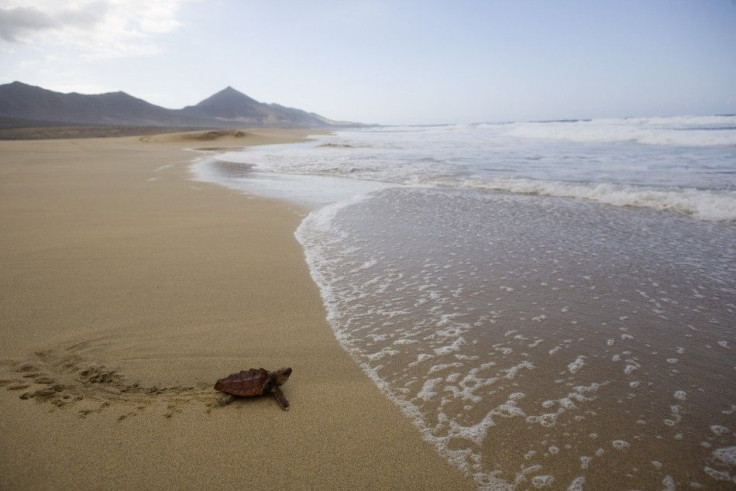Canary Islands: Oil Drilling Plans Threaten Tourism & Wildlife

When the Spanish government announced plans earlier this month to start prospecting for oil off the Canary Islands, the news didn't go over well. The go-ahead for Spain's oil and gas giant Repsol to prospect near Lanzarote and Fuerteventura sparked protests across the nation as fears grew about the vital ecosystem and the future of the Canary Islands' tourism-dependent economy.
Madrid approved the project despite significant opposition about the danger drilling presents to whales and other local marine life that call this part of the Atlantic home. Repsol is expected to begin exploration at nine locations at depths between 1,500 and 3,000 meters by 2014.
Spain imports nearly 80 percent of its energy, and as a result, Jose Manuel Soria, the industry, energy, and tourism minister, argued it could no longer afford the luxury of holding back business or wasting natural resources. High-end estimates put the reserves at around 100,000 barrels of crude a day - or one-tenth of the national demand.
Repsol promised investments worth $13 billion and 5,000 new jobs in the region, though about one-third of the workforce in the Canaries is unemployed, and many on the islands are steadfastly against the project.
More than 1,000 protesters of all ages gathered outside the national government offices on the island of Tenerife over the weekend with faces smeared with black paint. Similar demonstrations occurred on the six other main islands and in Barcelona and Madrid. Many chanted the slogans No tar on our beaches, and No to petroleum, yes to renewable.
The Canary Island of El Hierro claims to be the first 100 percent renewable island in the world. It's self-sufficient in terms of energy thanks to a large wind farm.
Located off the west coast of Morocco, the Canaries are Spain's second most popular destination after Catalonia. Fearing a loss to the island's all-important tourism industry, the Canaries regional government mounted a legal challenge against the project.
We are totally against this, Vice President José Miguel Pérez was quoted as saying, adding, the future of the Canaries is in renewable energies and combating global warming.
The Canaries are hugely popular with Britons with more than 2.6 million visitors each year to the seven islands - famed for 365 days of sunshine.
Noelia Sanchez, a spokesperson for the Madrid protestors, said the project would have absolutely no benefit for the islands.
It affects the industry we live off of, which is tourism, and is going to have disastrous social consequences, she said. It is also going to mean disaster for the biodiversity of the islands.
Greenpeace also chimed in, warning: Deepwater operations are inherently dangerous and pose enormous risks of spills, fires and pollution as demonstrated by the collapse of the BP platform in the Gulf of Mexico less than two years ago.
Respsol said it hopes to begin drilling within two years; however, it must first submit an environmental impact report to the government.
READ ALSO:
El Hierro Volcanic Eruption Creating a New Canary Island?
Volcanic Eruption in Canary Islands Produces Large Sea Stains [PHOTOS]
Amazing Time-Lapse Footage from El Teide, Canary Islands
© Copyright IBTimes 2024. All rights reserved.






















